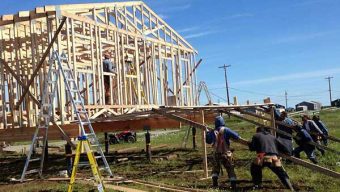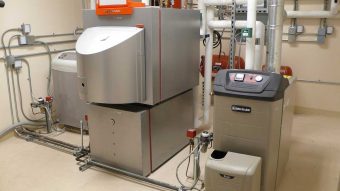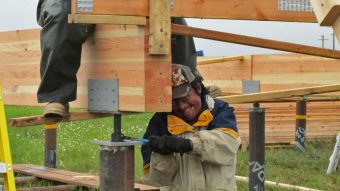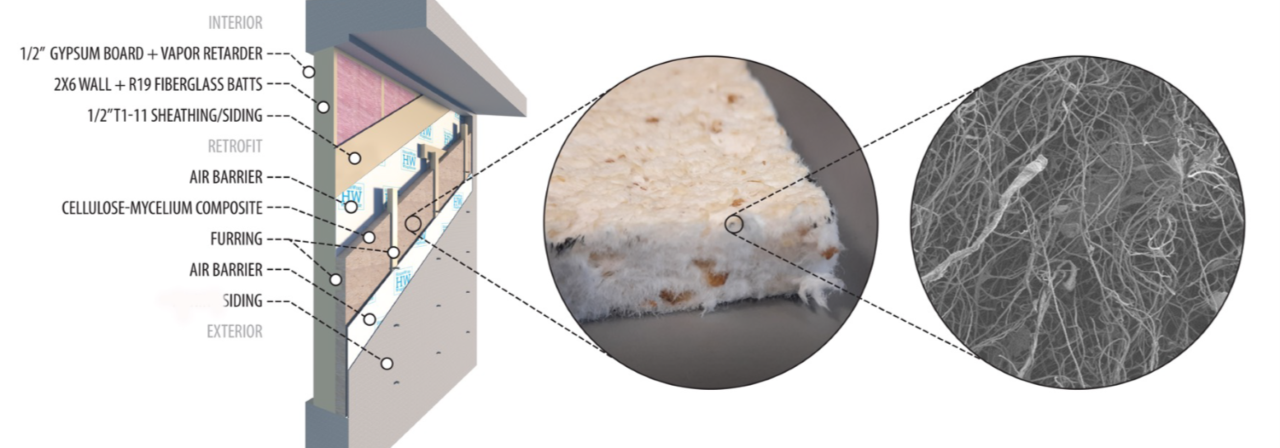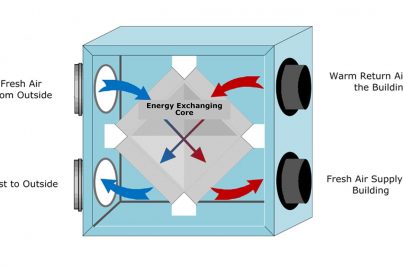Celium: Cellulose-Mycelium Composites For Carbon Negative Buildings/Construction
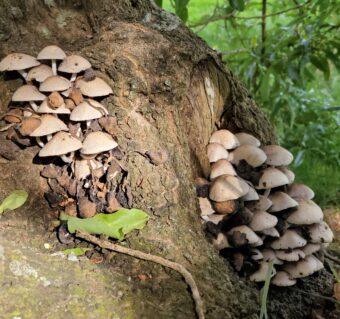 This project seeks to develop and de-risk cost-effective, bio-based insulation by fabricating net CO2-negative cellulose-mycelium composites with high-performance thermal, acoustic and antimicrobial properties. We propose to do so by valorizing cellulosic fibers with mycelium, the root network of fungi, to create a new class of high-performing, carbon capturing and storing foams and composites. An international, interdisciplinary R&D team composed of the National Renewable Energy Lab (NREL), VTT Technical Centre of Finland, Forest Products Lab, the Cold Climate Housing Research Center, Inc, and the University of Alaska Anchorage will develop on-site fabrication of bio-based mycelial material in a localized effort in Alaska.
This project seeks to develop and de-risk cost-effective, bio-based insulation by fabricating net CO2-negative cellulose-mycelium composites with high-performance thermal, acoustic and antimicrobial properties. We propose to do so by valorizing cellulosic fibers with mycelium, the root network of fungi, to create a new class of high-performing, carbon capturing and storing foams and composites. An international, interdisciplinary R&D team composed of the National Renewable Energy Lab (NREL), VTT Technical Centre of Finland, Forest Products Lab, the Cold Climate Housing Research Center, Inc, and the University of Alaska Anchorage will develop on-site fabrication of bio-based mycelial material in a localized effort in Alaska.
We will develop thermally and acoustically insulating mycelium-cellulose composites for climate zones (CZs) 4C-8 that,
(a) capture and store carbon (50 wt.%);
(b) are locally manufactured;
(c) are cost-competitive with carbon-positive synthetic and mineral materials, and
(d) are antimicrobial.
In addition we plan to build local expertise for localized production of carbon-negative bio-based composites and develop commercialization pathways for boreal forest-based materials to reduce the high CO2 footprint of surface disinfectants (i.e., ethanol) and pyrogenic CO2e. Our technology valorizes abundant cellulose from beetle-killed conifers and small-dimensional woody biomass with a disruptive biological based insulation.

